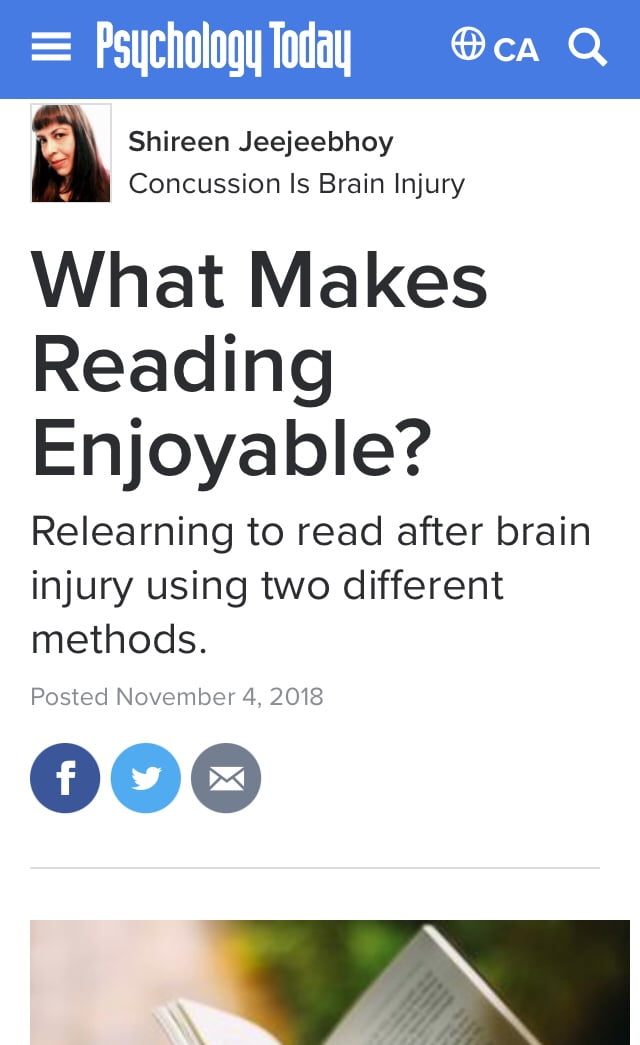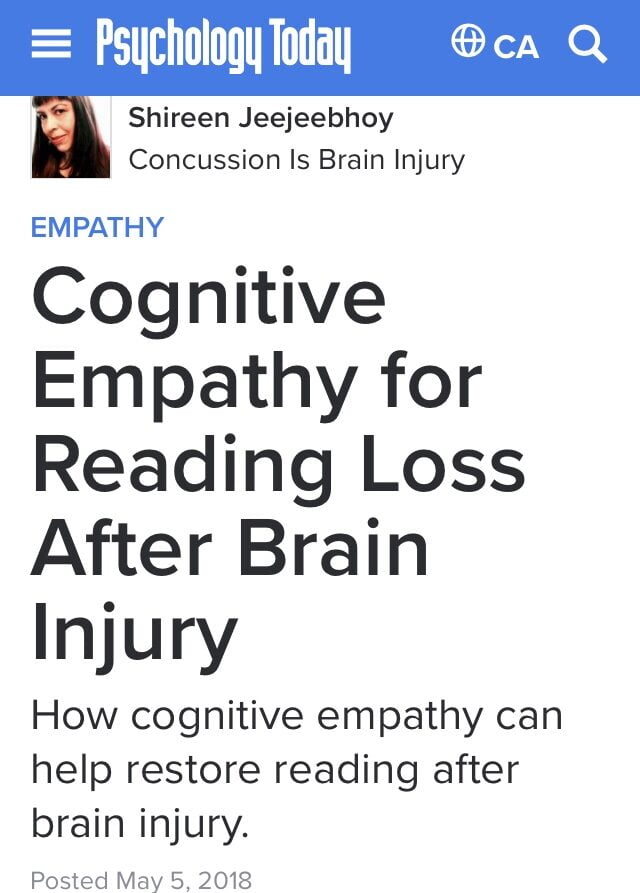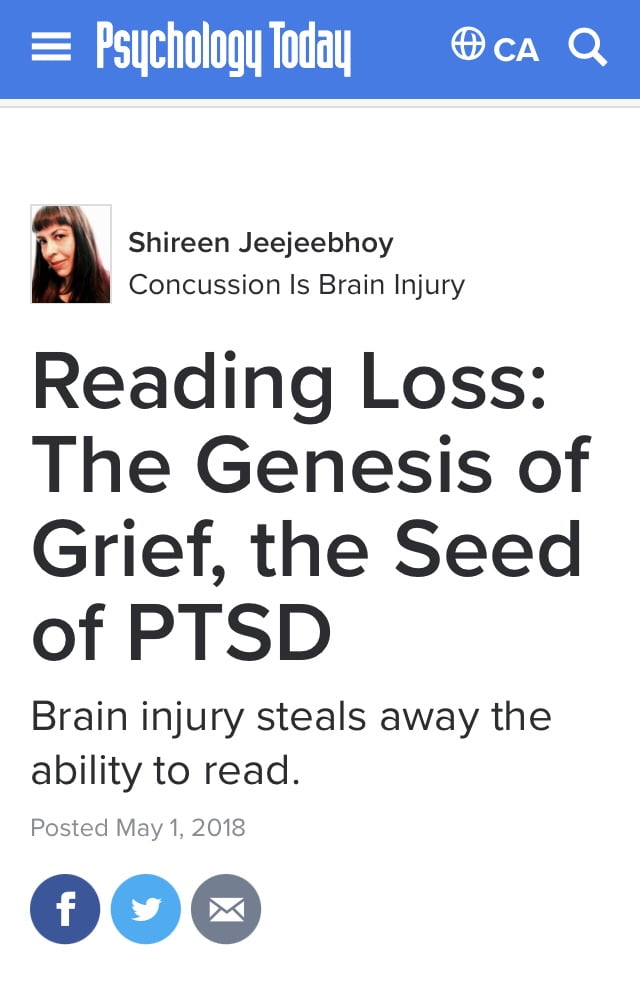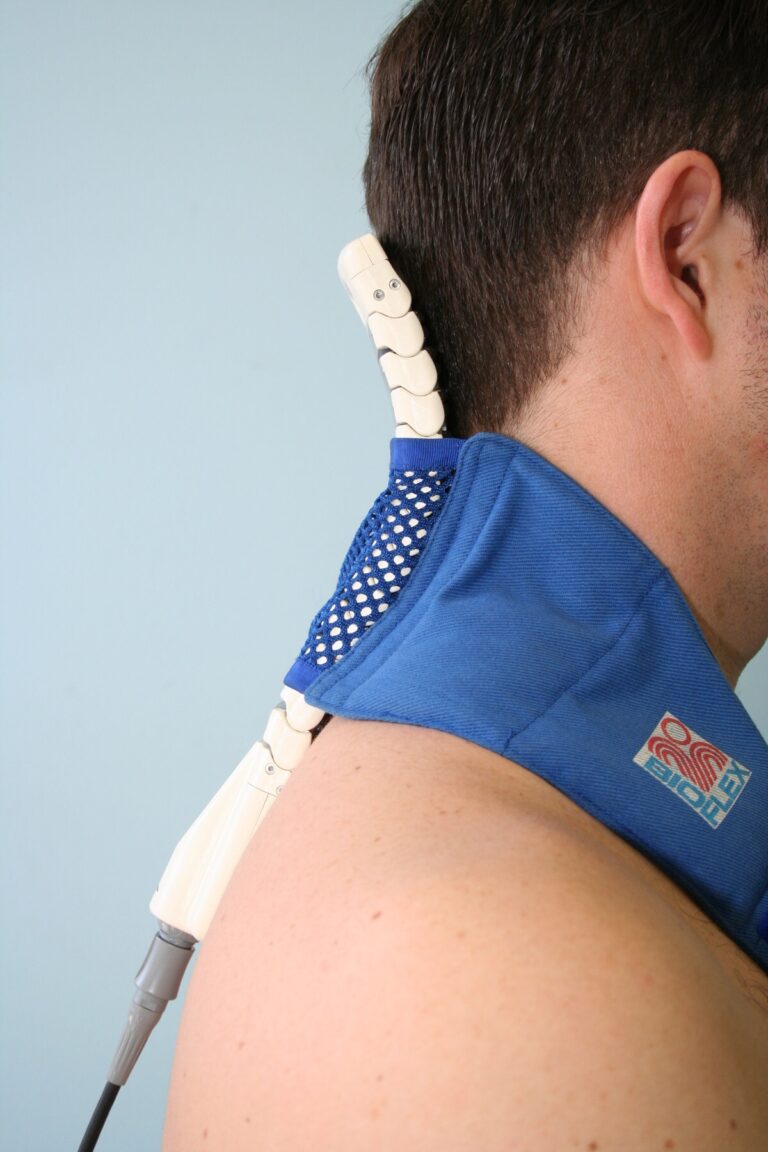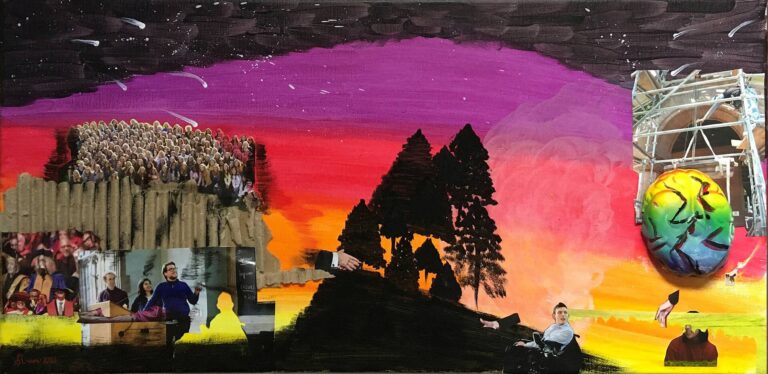I believed in reading strategies because I believed in my therapist—until I finally had to admit they were an illusion. I sat opposite my therapist, focusing effortfully on her lesson. She was teaching me how to read post-concussion using strategies: highlighters to highlight words I needed to remember; pens to write notes in the margins…
Tag: Brain Treatment
Cognitive Empathy For Reading Loss After Brain Injury
Cognitive empathy lets you imagine a client’s experience, puts yourself in their shoes, and act accordingly. How you can use it to help restore reading post concussion. Dr. Brian Goldman, a Toronto ER doctor and host of White Coat Black Art on CBC Radio, was on CBC Radio’s Ontario Today at noon, Friday, May 4,…
Reading Loss: The Genesis of Grief, The Seed of PTSD
You don’t know the grief of brain injury until you hear a gentle, compassionate voice drop the devastating news that you can’t read while you’re holding your usual paperback. You never know how brain injury will play out over time. What you think at first is mild becomes worse and worse. Biochemical changes wreak hidden…
Too Many Cooks — A 5-Minute Review
5-Minute 7 May 2022 Review after gamma AVE and biofeedback, photobiomodulation, and visualizing and verbalizing Lindamood-Bell Reading Rehab. I haven’t written a 5-minute review for the last few books. Oops! But I wanted to make sure I did for this one, for I’d reviewed it in 2012 before I underwent a raft of therapies that…
Time for Another Book
April means Camp NaNoWriMo (National Novel Writing Month). This year, I’m trying it again because a self-help book for people with brain injury sprouted in my brain and demanded being written. I obeyed. I set my Camp goal as 25,000 words. I don’t usually manage to last the month, and I thought halving the November…
Learned Helplessness and the Medical Profession
This pandemic reminds me of learned helplessness. I wrote on it on Psychology Today, but I’m left to wonder why doctors exhibit it in response to #COVID19?
Pain Focus in Medicine
Because medical professionals focus on pain rather than healing its cause, patients learn to talk about pain in order to get help.
Low-Intensity Laser Therapy for COVID-19
Back in December 2019, during Christmas break, I developed an unusual pneumonia and turned to my low-intensity laser therapy unit to help me breathe. I’d been in close contact with someone whose wife had a pneumonia that was stumping doctors and who himself had a cough. The cough was easily attributable to a long-standing cause.…
Dual Colours for Audiovisal Entrainment: First Time
I’ve not tried using two colours before for audiovisual entrainment. Thought about it, read Dave’s notes on it, but hesitated. Chicken! Yes, I claim pock pock pock status. Until today. Did my usual SMR/Beta this morning, but instead of one colour, I used two: red and magenta. Because it’s been a hell of a week.…

